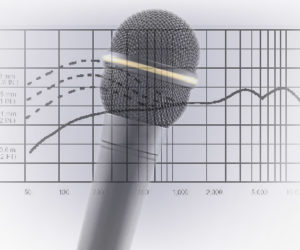Noted for his work as an audio/electrical engineer, loudspeaker designer, and inventor over a career spanning more than three decades, if there’s one constant in the professional audio career of Dave Gunness, it’s innovation.
And, perhaps more specifically, the fact that while the process of building something is valuable, the willingness and drive to continue to improve on your own creations is even more paramount.
The 56-year-old vice president of research and development as well as lead product designer at Fulcrum Acoustic – the rapidly growing loudspeaker manufacturer he co-founded several years ago – points to the creative aspects of design as always having been key to his work, and explains that his earliest creative impulses manifested themselves musically.
“I started out singing in church,” he says. “I think the biggest audience I played to was at a Christmas service to something like 1,500 people.” Stage fright was never an issue, he adds: “When you start out at six you get over it.”
Growing up in Janesville, WI, he had an interest in audio and recalls buying multiple car speakers at a rummage sale, hanging them around his room and wiring them up in different combinations. His musical interests continued through college when he performed bar gigs as a solo acoustic guitar player/singer and in various bands to make extra cash. And, since he couldn’t afford pre-built loudspeakers, he made his own.
“They weren’t complex, but they worked, and since I built them they went through probably a dozen revisions by the time I was done,” he notes. “I kept playing with the crossovers and changing out drivers and various things. It was a learning experience.”
Early Directions
Gunness’ first career choice, however, was aeronautical engineering, which he studied at Purdue University in West Lafayette, IN. But it didn’t last: “I went into the program thinking I’d design light airplanes. When I found out that nobody was actually doing that, and that aeronautical engineering meant you got to work on landing gear knuckles or something, I decided to go back to Wisconsin.”
There, he enrolled at the University of Wisconsin-Madison in electrical engineering, which, by way of a “flat-out coincidence” led him to pro audio. “In my second year there I discovered they’d created a new emphasis in the department called electro-acoustics,” he explains. “This was after Richard Greiner, who was famous for work he did on transistors in the early 60s, had gotten tenure. His emphasis was in semiconductors, but his passion was audio and he got this new program put in place, so I took on loudspeakers, acoustics and audio circuits. It was great.”
His love for music, however, hadn’t lessened. He still felt the lure of a career on stage. But what ended up tipping the scales in a different direction was a case of laryngitis. The story’s a little more involved than that, however. “In 1982 I played in what I’ll call a mercenary band; we had a booking agent, and whenever one of his bands canceled we’d substitute. One week we’d be a country band, the next a wedding or a rock band. It was a horrible experience,” he says, laughing. “Everywhere we went people were disappointed that we’d showed up.”
After a car accident enroute to one of the band’s gigs left him with a serious concussion, he was unable to attend classes at the beginning of the next college semester, so he decided instead to sit it out and play full time. “I got a great gig: three nights a week, 75 bucks a night – good money in those days,” he notes. “I played for a couple of months and came down with laryngitis. I couldn’t talk, but I could still sing so I continued until I lost my voice entirely. So I’m sitting there, halfway through the semester – can’t sing, can’t go out and play – and I realized how fragile a music career is and that it might make a better hobby than a job.”
Right after graduating in the mid-80s with a degree in Electrical and Computer Engineering from UW-M, he relocated to Buchanan, MI, accepting an engineering position with Electro-Voice. Even then he hadn’t entirely shaken the music bug, however: “Early on I had the idea that I was going to work for EV for a couple of years, save a bunch of money, buy a good sound system and then play music,” he says. Married by then, and with a family on the way, he realized it simply wasn’t realistic and concentrated fully on serious loudspeaker design.






